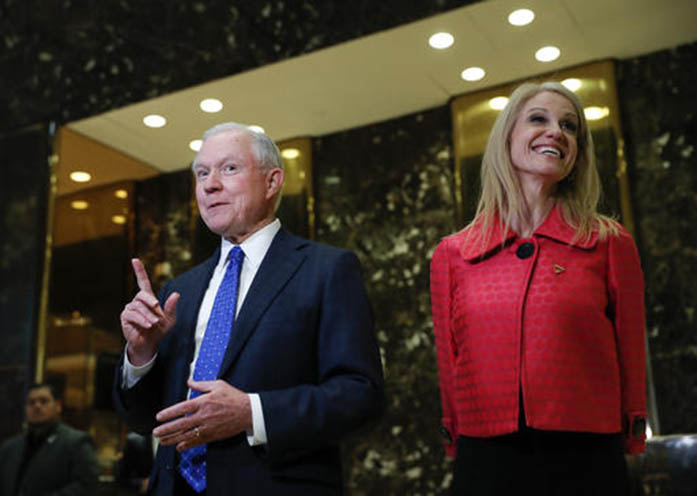By Rebecca Fernandez
On Nov. 30, comedian Mo Amer boarded his flight to Scotland and made his way over to his seat only to find the place beside him occupied by Eric Trump, son of President-elect Donald Trump. Amer jokingly assured his Facebook friends, “I will be asking him a lot of questions on this trip to Glasgow, Scotland” after posting a selfie of him with Eric Trump partially captioned, “Good news guys Muslims will not have to check in and get IDs.”
In an interview with BuzzFeed, Amer claims that Eric Trump waved away the much-discussed idea of a Muslim registry, telling him, “You can’t believe everything you read. Do you really think we’re going to do that?” Though Trump junior may not be getting his embossed silk boxers in a twist about the idea of a system that tracks the actions of potential “terrorists” (read: Muslims), it is doubtful his breezy response was any comfort to Amer or any other Muslim Americans who read about the interaction. The threats of Muslim registries, mandatory identification, and increased detention are not treated as a joke. Activists note similarities to the deplorable treatment of Japanese Americans before their internment during World War II.
Trump’s Cabinet picks have thus far consisted of several conservative billionaires, many among them proud white supremacists, which has raised plenty of eyebrows. As we anticipate drastic domestic-policy reforms under Donald Trump, many are scrambling to secure what may be lost under the coming administration.
People such as Sen. Jeff Sessions, R-Ala., Donald Trump’s hardline anti-immigration pick for attorney general, are likely to sign off on the use of powerful technology to help crack down on minorities and immigrants. The onus now falls on social-media platforms, which service millions of users, to protect our data and even to destroy vulnerable information that could put Muslim Americans and other minority and immigrant groups at risk of tracing by invasive technology.
Sam Biddle of The Intercept reached out Dec. 2 to nine prominent tech companies, asking them, “Would [name of company], if solicited by the Trump administration, sell any goods, services, information, or consulting of any kind to help facilitate the creation of a national Muslim registry, a project which has been floated tentatively by the president-elect’s transition team?”
Only Twitter responded with a solid “no,” linking to its company policy against the use of data for surveillance purposes. Facebook, Google, Apple, IBM, Booz Allen Hamilton, SRA International, and CGI had no straightforward response to offer, though that isn’t proof of their intentions, either.
Still, evidence of the increased use of social-media-surveillance software should not be ignored. The ACLU of California worked with local activists in Fresno last year to reveal that its police used a MediaSonar social-media-surveillance tool that monitored hashtags such as #BlackLivesMatter, #DontShoot, and #PoliceBrutality, citing their aim as identifying “threats to public safety.” After they requested records from 63 police departments across California alone, the ACLU reported that 20 have recently acquired social-network-surveillance tools, though there has been no apparent legal recourse, community discussions, or public knowledge regarding this new approach.
Social-media-surveillance tools such as MediaSonar, Geofeedia, and X1 Social Discovery are already in use, designating activists groups such as Black Lives Matter as threats or terrorist groups while they receive funding from known white supremacists and suspected KKK affiliates. Geofeedia has categorized unions and activists groups as “Overt Threats.” The potential for increased surveillance if a platform were to sell its information would be tremendous.
While Eric Trump flies first class from golf course to golf course, swathed in lavender cashmere and urging us not to believe everything we read, people hashtagging solidarity with activist movements are identified by police as terrorists, gang bangers, and threats to his fathers’ looming neo-fascist regime — so yeah, I really think they’re “going to do that,” or at least try.
There should be no reasonable doubt whether Trump senior and his cronies have every intention to use any and all technology to help implement and enforce their draconian laws targeting minority groups. Social-media platforms have 45 days to decide whether they will be complicit.



